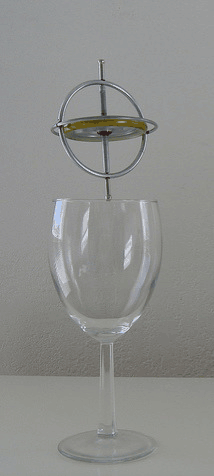I tend to think about life rather than live it. (or frantically live while thinking about other things) I feel as if I’m standing on the bank thinking about the course rather than practicing swimming in the river. The longer you stand on the bank, the more out of shape you get. You become a landlubber. Roots grow beneath your feet. The flow of the river becomes a scene viewed through a window and the skill of swimming in the flow is lost.
Granted, one cannot live without thinking about life. Planning is necessary to a productive life. But balance is the key. Do you ever feel lost in a group conversation, where you can follow but almost never add to it? Do you feel like a clumsy oaf when trying new things? The issue is probably that you are too far removed from the present, too much time spent on the bank watching the river flow by.
Body Language and Alexander. Here I refer to our own body’s language, the signals our bodies give us in response to events. Most of us respond unconsiously to most stimuli: annoyance, fear and anger all translate into the body directly. The goal is first to be aware of these reactions, then eventually control them.
Do you feel your body energy change when you pass people walking on the street? I feel a change in the “posture” of my neck and shoulders while passing people in my local public park. It’s a fairly safe park, so that’s not the problem.
I can be walking along merrily with a lanky flow in my body until I near another person or group. Subtle habits of fear tense in me: fear of what they’re thinking of me, of their possible judgments. A multitude of micro-anxieties clog the flow of my body. In a way I shut down. Yet I’m barely aware of it unless I tune in carefully, which I’ve only recently learned to do. I tend to look away or down the moment our eyes meet. I fear their rejection. This subtle reaction becomes the norm. I forget I ever knew the flow.
When I refer to the “flow”, I mean a state of physical and mental poise, natural and relaxed, from which one can move the body and mind in any direction. Many Eastern physical “arts” have a similar starting point for their practices.
I’ve been learning about Alexander technique for a few months now. Originally, this technique was used to help actors and other performers tune in to their body’s reactions to stress. But I am finding that it can help balance many issues whose primary symptom is held in the body. If the body is unbalanced and tense, the mind, being part of it, will certainly suffer as well. You may not be able to change the stress causing events in your life, but you can change how you, starting with your body, react to them.
An animal’s body reacts to surprise with a tensing of the neck and shoulders. This is called the “startle position”. Humans have a great deal of stress in their daily lives. Driving a car is the most common. Job performance is another.
Add to these the multitude of subtle stresses that can be created by the imagination. Fear of judgment is a huge issue for me. Growing up gay trained me to live cautiously. Those habits are deeply ingrained in my body’s life. I’m sure you also have some issues of self-consciousness, which inhibit the flow of your true self. Please feel free to explore these in your comments.
We all have inevitable stress in our lives. How we handle this bombardment is vital to health, to freedom and growth.
Learning your body’s language is the key. When you learn to stay relaxed and poised you are a more continuous person emotionally and intellectually. Concentration is better. Decisions are easier. Coordination is better.
Doing rather than analyzing is the goal. Being in the body rather than the mind is the path. One Alexander teacher emphasizes the importance of staying aware of the “live” situation around you as you become aware of the body, being in the room rather than in the mind while you move your arm or relax your neck. This way your neck relaxes without you “thinking” about doing it or “telling” it to relax. The difference is paramount.
These skills are particularly important for a musician. Speaking with the body is what musicians do. However, any human body can benefit from learning to better speak its own language.
We are bodies. Our body’s intelligence/poise gives continuity to our daily lives. And swimming in the river helps. So jump in. The water may seem cold at first, but it’ll warm up, and then you’ll feel more alive than ever.

